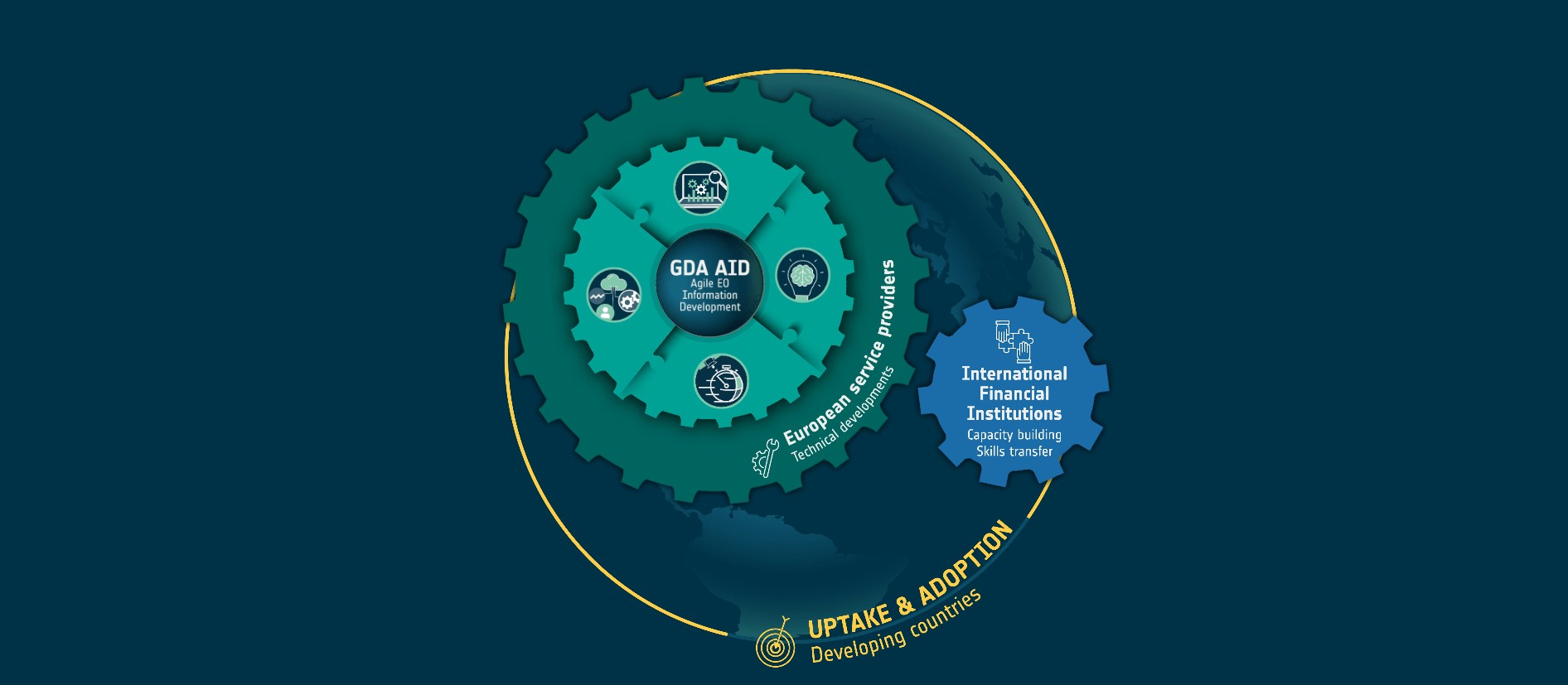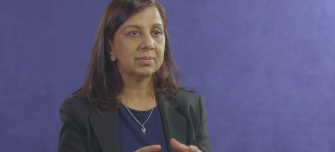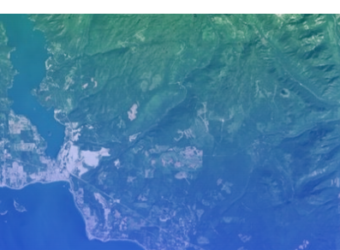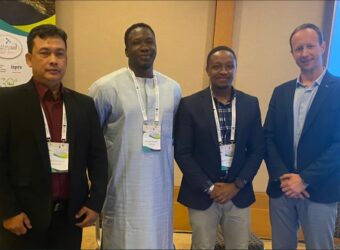In the week of May 4-7 May, in Milan, the European Space Agency’s (ESA) Global Development Assistance (GDA) programme took part in the 58th Annual Meeting of the Asian Development Bank (ADB). The event gathered representatives from ADB’s 69 member countries to address key development challenges facing Asia and the Pacific, with a strong focus on digital transformation, disaster risk, and climate resilience.
ESA’s presence throughout the event reinforced its long-standing collaboration with ADB, currently boosted through the ESA GDA programme, aiming to promote the operational uptake of Earth Observation (EO) data across development activities in the Asia-Pacific region.

Spotlight on Climate and Environmental Resilience
On 7 May, ESA contributed to a flagship panel session titled “Empowering Resilience: A Discussion Around Weather Shocks and Air Pollution”, organised by the World Bank Group’s Institute for Economic Development. The session explored how interconnected crises, ranging from air pollution and climate shocks to social vulnerability, are reshaping the development landscape, and how innovation and data can support more inclusive responses.
Christoph Aubrecht, Programme Coordinator for ESA’s GDA, joined a diverse panel that included Forhad Shilpi from the World Bank, Hélia Costa from the OECD, climate policy expert and IPCC author Massimo Tavoni from the European Institute on Economics and the Environment (EIEE), and Bénédicte Peillon-Russo from the sustainability consultancy NATIVA. The session, moderated by science journalist Silvia Lazzaris, underscored the need to empower people, markets, and institutions through data-driven strategies for resilience.


Reinforcing Digital Collaboration
Beyond the panel session, Yves Barthélemy, Digital Technology Specialist in ADB’s Digital Sector and ESA focal point, introduced ESA colleagues to senior ADB actors driving the institution’s digital agenda and joined several core sessions focused on digital transformation in Asia and the Pacific. One highlight was ESA’s participation in ADB’s high-level roundtable on Trends, Challenges, and Opportunities for Digital Transformation, conducted under the Chatham House Rule. Rune Floberghagen, Head of ESA’s Climate Action, Sustainability and Science Department, took part in this session alongside ADB senior management, as well as representatives from other partner institutions. The discussion focused on the enabling role of technologies such as artificial intelligence, broadband connectivity, EO, and digital policy under ADB’s Strategy 2030 and new Digital Transformation Operational Approach.
EO Integration in Asia-Pacific Projects
The role of EO in regional development was further discussed during the Geospatial Domain – Digital Transformation for Water, Urban and Agriculture Sustainable Development session, organised by Leonardo. Moderated by Massimo Comparini, Managing Director of Leonardo’s Space Division, the session brought together speakers from ADB, IFAD, e-GEOS, GAF, and Indonesia’s Ministry of National Development Planning (BAPPENAS).
During the discussion, Bruce Gosper, ADB Vice-President for Administration and Corporate Management, emphasised that Earth Observation can be used in all phases of development projects. He cited its application in flood management in North Java, an example drawn from ESA-supported work under the EO4SD initiative and ESA GDA programme. Donal Brown, IFAD’s Associate Vice-President for Country Operations, shared IFAD’s experience working with ESA (under the GDA Climate Resilience activity) on the Murat Watershed management project in Turkey and on erosion mapping in Nepal. Philippe Moreels, CEO of GAF, also highlighted the company’s ongoing work on EO-enabled projects with ADB and other development banks, noting ESA’s role in facilitating these collaborations.

Exploring Climate Risk Tools
ESA representatives also visited the Disaster Risk Analytics Explorer booth, where ADB’s Information Technology Department showcased a new AI-based platform for climate and disaster risk assessment. The Explorer provides simplified access to analytical results covering thousands of critical assets, from buildings to infrastructure networks, and supports data-informed planning for resilience. ESA welcomes this development and looks forward to following how ADB will operationalise this tool in future programmes.

















